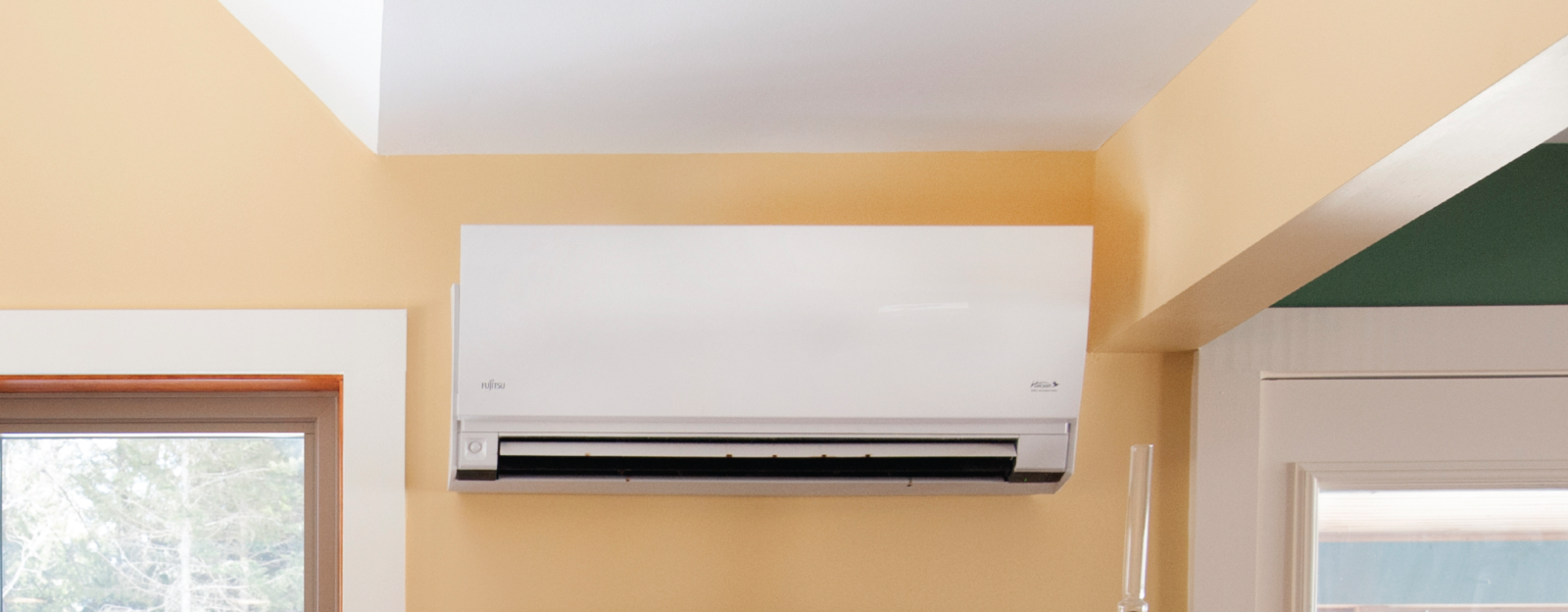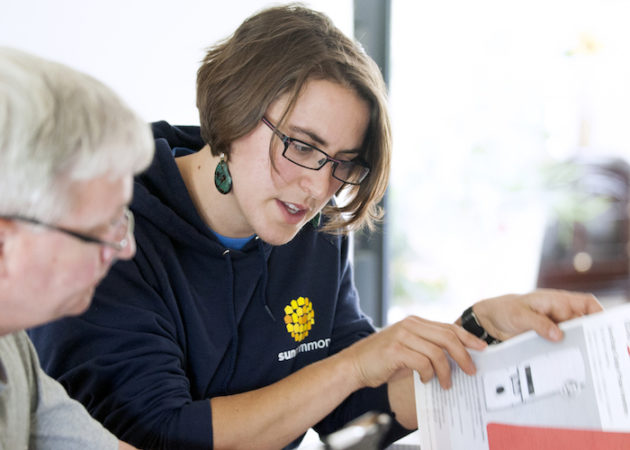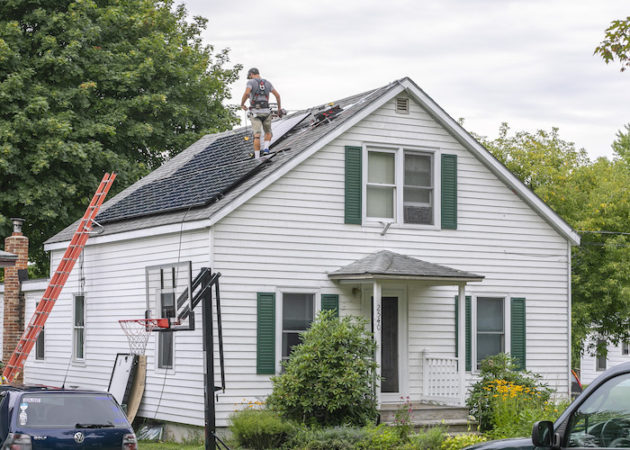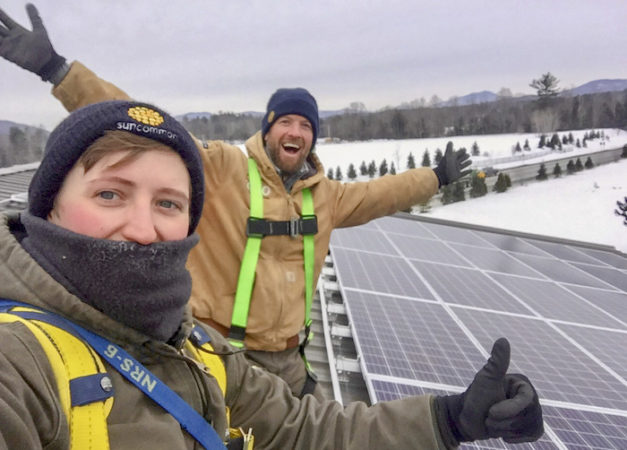Heat Pumps: How They Work and What They Cost
Conventional furnaces, boilers, and stoves burn fossil fuels or wood to warm your home in cold weather. Heat pumps, on the other hand, use electric refrigeration technology to extract heat from the air outside (yes, even from cold air!) and then efficiently transfer that heat into your home.
You probably already have a heating system that works, but can your furnace keep you cool in the summer? Despite the name “heat pumps,” they also provide cooling and dehumidifying in summer by running that process in reverse. And unlike noisy air conditioners, heat pumps are virtually silent.
Year-Round Comfort, Powered by the Sun
Heat pumps use electricity to move energy (heat) around to make a cool space warm, or a warm space cool. When you pair that with solar, you’ll use clean electricity to heat your home in the winter and to cool off in the summer, which means you can feel good about your energy choices all year long.
By going solar, you stop paying your utility for dirty energy — so why not replace your furnace with a heat pump and lower your carbon footprint even more?
Are heat pumps worth the investment?
According to Northeast Energy Efficiency Partnerships, switching from fuel-based heating to air-source heat pumps saves the average homeowner between $300 and $900 a year. Not only do heat pumps cost far less to operate than conventional furnaces, the expense is more predictable: instead of paying for large fuel deliveries every so often, you’ll just see small increases on your monthly electric bill.
If your home already runs on solar and you have a large enough system, you may be able to add heat pumps to your home without seeing an increase on your electric bill.
Thank you for your submission
Someone will be in touch shortly.
The graphic below compares the cost of different heating sources — heat pumps powered by solar electricity beats them all.
Not only is heating with dirty fuels like kerosene, propane, or fuel oil more expensive than heat pumps, they’re also harder on the environment. And since the installation cost is about the same as any new HVAC system, you might as well invest in clean & efficient heat pumps.











